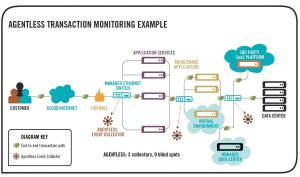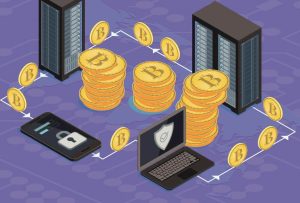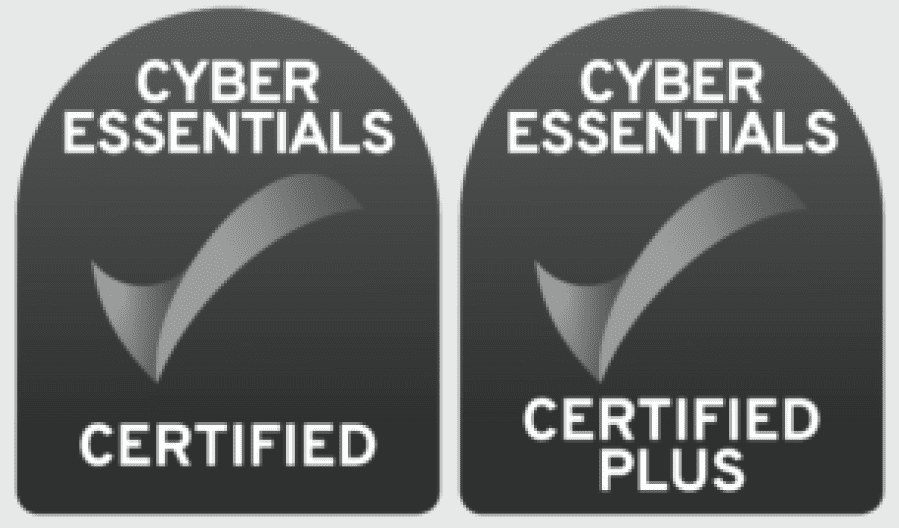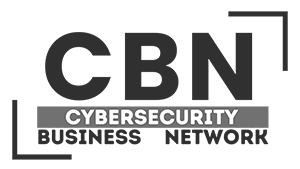The iGaming industry has always been attractive for hackers: it doesn’t take a lot of resources to plan an online casino heist in the digital space and at the same time cybercriminals can reap big payoffs with just a few tools or tricks.
During COVID-19 lockdowns, when casinos closed, gamblers turned to online gaming sites. According to UK research, regular gamblers were six times more likely to gamble online compared to before the pandemic. In the US, the online gambling and betting market was worth around $61.5 billion USD in 2021 and is estimated to grow to $114.4 billion by 2028.

This market growth has attracted the attention of hackers who see both lucrative opportunities and vulnerabilities in the digital environment. Instead of fake chips, counterfeit bills, and slot cheats of the real-life casinos, today’s cybercriminals use Dedicated Denial of Service (DDoS) attacks and user account fraud to attack online gaming sites.
While real-world gambling houses need strong physical security and surveillance, for online sites their resilience to crime now depends upon strategies and measures designed by their cybersecurity experts.
New Challenges and New Tools in Fighting Cybercrime
According to research, more than 76 percent of Q3 2020 cyber attacks targeted online gaming and gambling. In 2020, SBTech’s platform was taken down in a ransomware attack. The shut down affected hundreds of third-party websites that utilized SBTech’s platform to run their sports betting and online casino services. In the same year, popular gambling app Clubillion became a victim of hackers who exposed 200 million records of customer information per day and made the app’s users vulnerable to banking frauds and other possible cyber attacks.
While many iGaming companies might have invested in cybersecurity tools in the past, 2022 brought in new challenges that spurred businesses to overhaul their cybersecurity strategies.
Intelligent bots powered by AI have become good at mimicking human behavior and are three times harder to detect. The Russian invasion of Ukraine brought in an increase in the number of state-sponsored actors targeting critical infrastructure with DDoS attacks. At the same time, businesses face a completely new pool of pandemic-generated citizen fraudsters and cybercriminals.
How can iGaming companies stay resilient to hacking? Here are a few strategies that will help businesses protect their online presence and revenue.
1. Ensure multi-layered cybersecurity to prevent interruptions from DDoS and bot attacks

Online gambling and sports betting site operators face pressure to have their sites always available. On betting sites, transactions are made in real-time, so even a small slowdown can result in visitors leaving for a competitor’s site. DDoS attacks can disrupt a site’s availability for hours or days and cost businesses up to $40,000 per hour.
Hackers can initiate DDoS attacks on multiple layers, making it hard to detect and block them. In an application layer attack, application services or databases get overloaded with a high volume of application calls. Attacks targeting network layer or transport layer protocols overwhelm target resources.
Application layer DDoS attacks are some of the most difficult attacks to mitigate because they mimic normal user behavior and are harder to identify. They can bypass even industry-leading firewalls and biometric protections.
To stay resilient to these types of threats, iGaming businesses can use real-time payment monitoring tools with behavioral analytics that leverage data not only from the network and applications but also from the application payload.
2. Block cybercriminals, not revenue

Traditional cybersecurity solutions can be slow in detecting new and emerging cyberattacks and they experience an even bigger challenge in blocking the crime. Traditional firewalls can only block traffic at the IP address and port level of the network. That means that in case of a DDoS attack or other high-velocity attacks, the firewall will block legitimate customers coming from the same IP address or port. This results in high amounts of false positives, angry customers, and lost revenue.
Newer cybersecurity solutions leverage both unsupervised and supervised machine learning to identify emerging threats and build individual customer profiles on the fly. Through self-learning, machine learning models are updated automatically and they can assign a risk score for a transaction in milliseconds and block only the criminal activity, keeping legitimate transactions unaffected.
3. Protect gamer’s accounts

Revenue isn’t the only thing that can be lost due to cyber attacks. The gambling and betting businesses also store their players’ personal and payment data which may also be targeted by criminals. Bad actors can takeover user accounts or commit other identity-based attacks. It’s the responsibility of a business to ensure the security of its players’ accounts and any mistake can cause serious reputational damage.
Continuous real-time screening and transaction monitoring with automatic risk-scoring can help iGaming companies identify suspicious behavioral patterns and anomalies and automatically block them before they damage the brand.
4. Stay on top of your weak links in the system
While investing in cybersecurity tools and building the right team are essential, it’s still important to regularly analyze vulnerabilities or weak links in the system. An online gambling company might have great player authentication solutions, but miss some other important pieces of the security puzzle.
Does your business have all the right data, when you need it? Is it available instantly? Do you have protection on multiple layers, including your network and applications? Are you monitoring for the correct types of threats? If these questions are included in a regular review with your team, you can stay vigilant against emerging threats.
5. Secure cryptocurrency and digital payments

As more and more companies accept cryptocurrencies for sports bets and online gambling, keeping digital currency protected should be included in the cybersecurity strategy. If you can use the same tools for fraud detection and monitoring digital transactions from one platform that provides your team with access to real-time data, you can stay ahead of bad actors and keep their hands out of your business’ pockets.
6. Stay compliant

The gambling industry is highly regulated. Businesses are required to ensure compliance with Know Your Customer (KYC) and Know Your Supplier (KYS) regulations. Online gambling operators also must implement strong anti-money laundering (AML) procedures to avoid penalties and in some countries, report incidents of cyberattacks.
Real-time transaction monitoring with machine learning and behavioral analytics will enhance the protection of the iGaming business, automatically separating bad actors and suspicious activity from legitimate players and visitors. As many digital transactions are instant and irrevocable, your cybersecurity tools should be able to keep up the pace and help minimize business risks.
(1) Alan Emond, Agnes Nairn, Sharon Collard, Linda Hollén. Gambling by Young Adults in the UK During COVID-19 Lockdown. Journal of Gambling Studies, 2021; DOI: 10.1007/s10899-021-10029-y
(2) Recent Trends in Global Online Gambling & Betting Market Size & Share to Exceed US$ 114.4 Bilion, at 10.9% CAGR Rise by 2028 – Industry Analysis, Trends, Forecast Report by ZMR; available at: https://www.prnewswire. com/news-releases/recent trends-in-globalonline-gambling–betting-market-size–shareto-exceed-us-114-4-bilion-at-10-9-cagr-rise-by-2028– industry-analysis-trends forecast-reportby-zmr-301542610.html
(3) Online Gaming is a Hotbed for DDoS Attacks, According to Nexusguard Research; https://www.businesswire.com/news/home/20201215005432/en/Online-Gamingis-a-Hotbed-for-DDoS-Attacks-According-to Nexusguard-Research
(4) C. Cimpanu, Gambling company to set aside $30 million to deal with cyber-attack fallout; https://www.zdnet.com/article/gamblingcompany-to-set-aside-30-million-to-deal-withcyber-attack-fallout/
(5) Cyber Threats of Online Gambling | Five Online Gambling Platform Breaches to Learn From; https://eclypses.com/news/cyber-threatsof-online-gambling/








